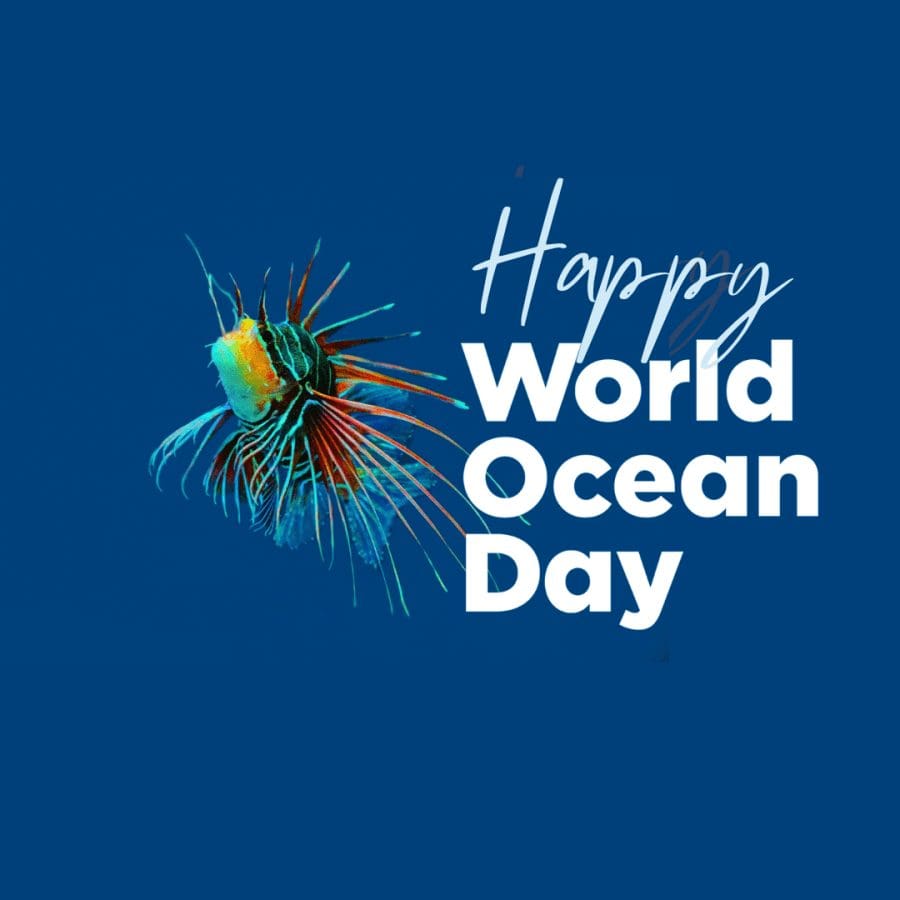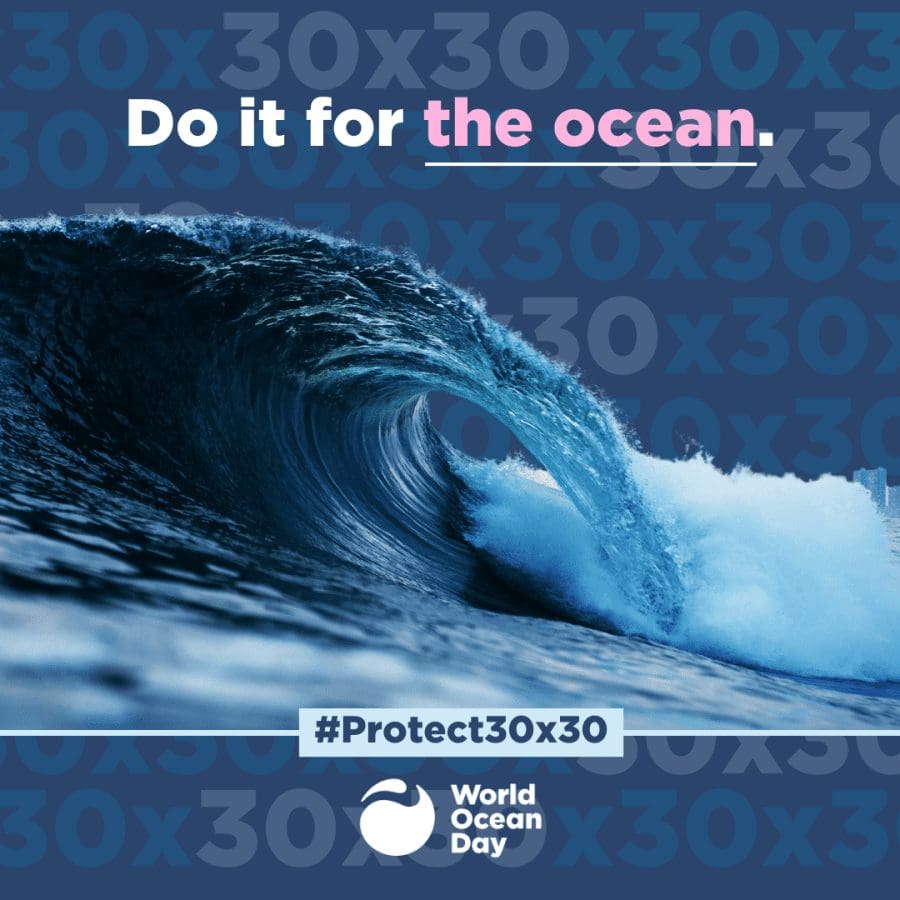
World Oceans Day June 8th
#WorldOceansDay #SaveOurOcean #30×30 #TOGETHERWECAN?
Why Celebrate World Oceans Day?
The oceans are the lungs of our planet, providing most of the oxygen we breathe. They are a major source of food and medicines and a critical part of the biosphere.
On 8 June each year, we celebrate the ocean, its importance in our lives, and how each of us can protect it, no matter where we live. World Oceans Day raises the profile of the ocean, connects people worldwide, and inspires continuing action year-round to protect and restore this amazing resource that we all depend on. In the end, World Oceans Day is a day to celebrate together the beauty, the wealth and the promise of the ocean, and to unite the world’s population on a project for the sustainable management of the world’s oceans.
Focus for 2023 World Oceans Day: Protect the Ocean
This year, conservation and action is again focused on protecting at least 30% of our lands, waters and oceans by 2030 (30×30).
To create a healthy ocean with abundant wildlife and to stabilise the climate, it’s critical that 30% of our planet’s lands, waters, and ocean are protected. By supporting 30×30, we can protect our planet’s life support systems – specifically the interconnected issues of ocean, climate, and biodiversity. Currently, less than 17% of land and 8% of the ocean worldwide is protected.
Due to the efforts of the growing global 30×30 movement, more than 90 countries have already committed to protecting at least 30% of their land and ocean by 2030. A healthy ocean is a critical part of the solution to the climate and biodiversity crises, so together we will do our bit to continue to grow the global movement to protect at least 30% of our blue planet by 2030 and safeguard our future!
Some fun Ocean facts:
- Oceans cover three-quarters of the Earth’s surface, contain 97 per cent of the Earth’s water, and represent 99 per cent of the living space on the planet by volume.
- Over three billion people depend on marine and coastal biodiversity for their livelihoods.
- Globally, the market value of marine and coastal resources and industries is estimated at $3 trillion per year or about 5 per cent of global GDP.
- Oceans contain nearly 200,000 identified species, but actual numbers may lie in the millions.
- Oceans absorb about 30 per cent of carbon dioxide produced by humans, buffering the impacts of global warming.
- Oceans serve as the world’s largest source of protein, with more than 2.6 billion people depending on the oceans as their primary source of protein.
- Marine fisheries directly or indirectly employ over 200 million people.
- Subsidies for fishing are contributing to the rapid depletion of many fish species and are preventing efforts to save and restore global fisheries and related jobs, causing ocean fisheries to generate US$ 50 billion less per year than they could.
- As much as 40 per cent of the world oceans are heavily affected by human activities, including pollution, depleted fisheries, and loss of coastal habitats.
How will you #safeguardourfuture this World Oceans Day?
Written By:
Whilst always interested in the power of nature, it was with the birth of her own daughter that she gained a greater appreciation for just how precious (and fleeting) childhood is, and the importance of providing children with a nature centric early learning experience.




